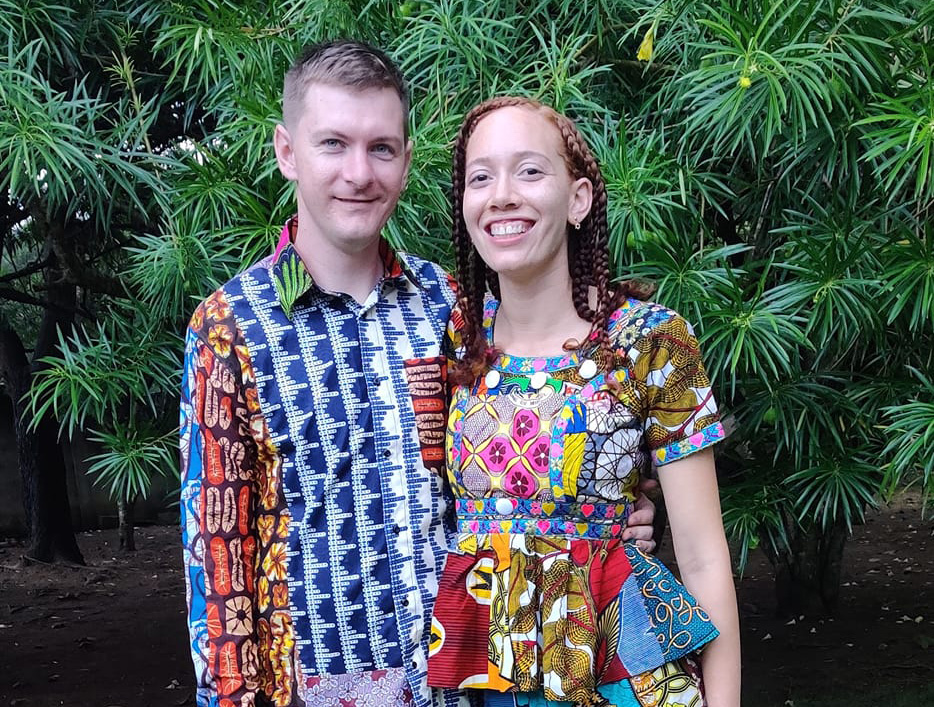
Kevin and Moriah Thompson are approaching the end of a season of preparation for future ministry. Soon, they will return to their home state of North Carolina in the United States to report back to their supporters and invite people and churches to join their team as they look forward to a new season of service in Africa, this time as career missionaries in the nation of Côte d’Ivoire.
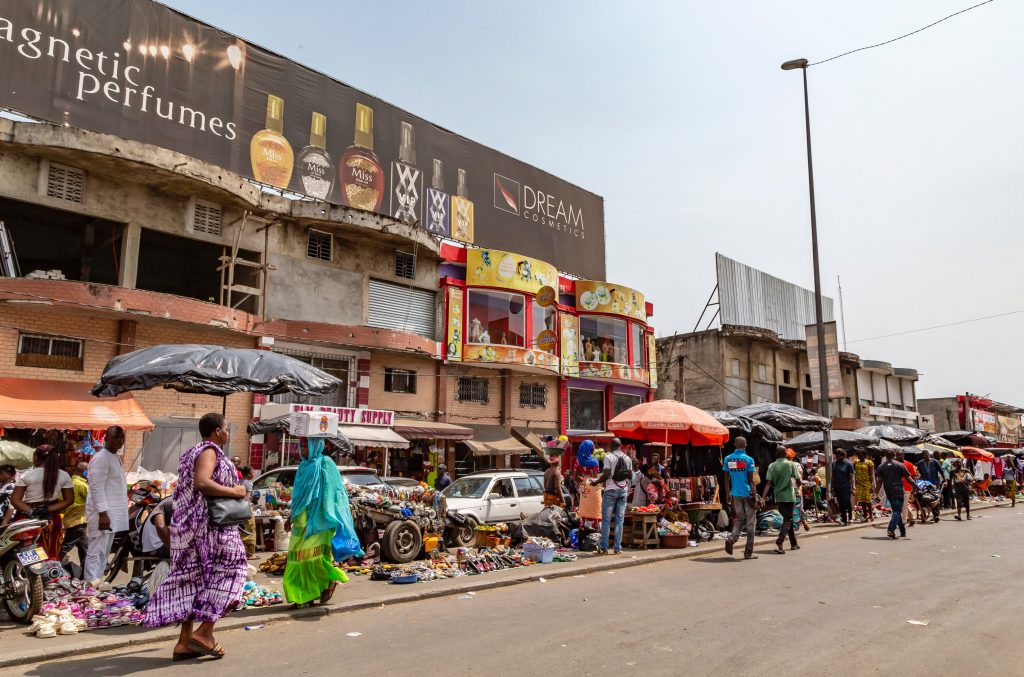
In many ways, Côte d’Ivoire may be like first-century Ephesus in its strategic role for reaching surrounding regions. Because of this, joining the Thompson’s team (more on how you can do that at the end of this article) may very well have more far-reaching effects than just reaching Côte d’Ivoire.
Ephesus: A Strategic Center for Outreach
Examining the characteristics of Ephesus which made it a strategic center for outreach in Asia Minor (cf. Acts 18-20) may provide us clues to why Côte d’Ivoire may be a strategic center for reaching West Africa and beyond.
Which characteristics of first-century Ephesus made it a strategic center for outreach in Asia Minor?
Central Location: Ephesus was a commercial center of the Roman empire, surpassed in importance only by Rome, Alexandria, and Antioch of Syria.1 On the western coast of Asia Minor (modern-day Turkey), it served as a major port on the Aegean Sea.
Beyond the centrality of Ephesus to Asia Minor, the province was at the crossroads between east (greater Asia) and west (Europe). Traversed by major roads, the region facilitated easy access to the entire province from coastal cities such as Ephesus, and attracting people from all over the known world.2
Specifically, from Ephesus one could access roads which led:
- north to Smyrna, Pergamum, and ultimately to Troas;
- northeast to Sardis (and then from there, north to Thyatira or south to Philadelphia);
- east to Laodicea, Hierapolis, and Colossae; and,
- south to Miletus, Didyma, and Halicarnassus;
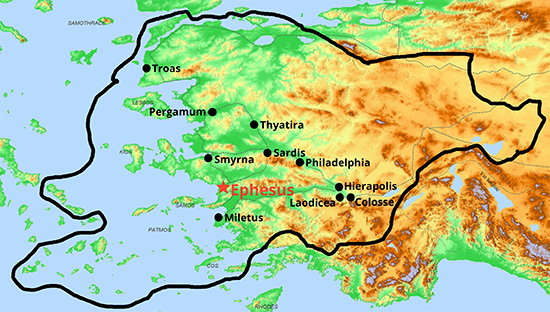
Diversity: As a center of trade and a major port, Ephesus was a very diverse city — with a variety of ethnicities and religious persuasions among its population.3
Age and Life Expectancy: The population of Ephesus was definitely younger than today. According to at least one source, the life expectancy of adult males in Ephesus was about 37 years of age.4
Religious Life: Ephesus was home to one of the “Seven Wonders” of the ancient world, the Temple of Artemis (or Diana to the Romans), and worship of the goddess Artemis dominated most of life in Ephesus in the first century. The city’s financial wealth largely depended on the worship of Artemis — in fact, the temple of Artemis became the largest bank in the Roman Empire.5. The cult of Artemis became so identified with the city of Ephesus that the goddess eventually became known as “Artemis of the Ephesians.”6
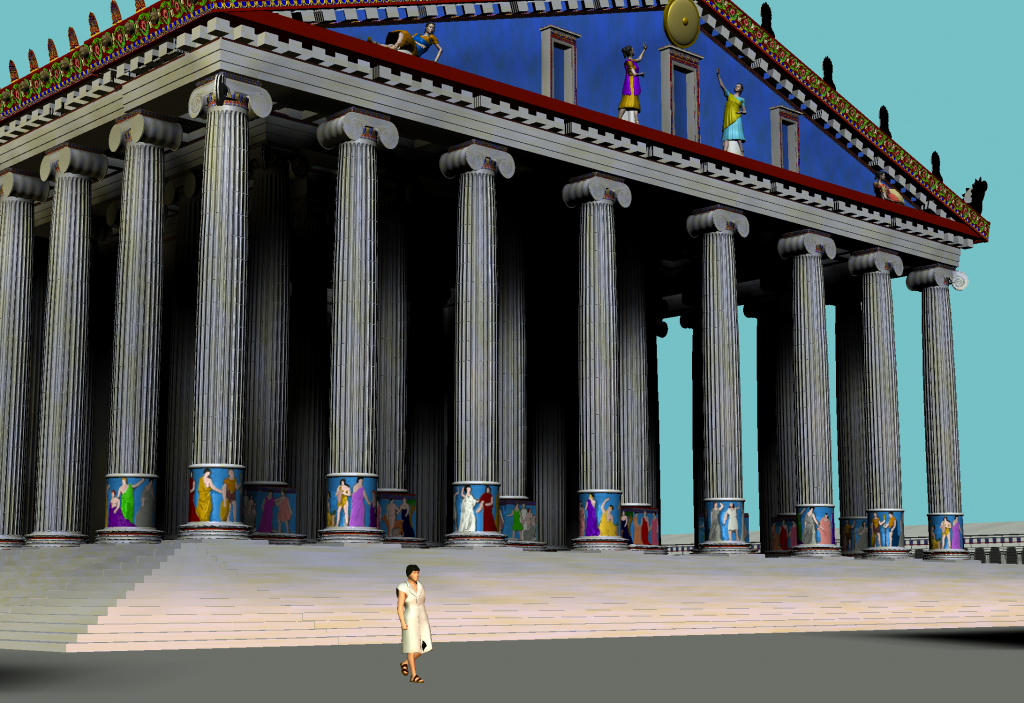
Ephesus was also a center for what the Bible calls “magic arts” — rituals that people believed allowed them to manipulate the gods and spirit powers, essentially an animistic worldview which believed that spirits live throughout the world and were involved in every facet of daily life.7 These “arts” included the use of magical names in incantations, the wearing of amulets thought to have magical powers, and the possession of scrolls with magical formulas and/or recipes written on them, all of which were thought to allow one to control the spiritual world.8
Corruption: Corruption was a problem in the banking industry of Ephesus. Although the temple of Artemis could finance its programs through the monetary support of surrounding areas, loans, and fines, temple officials sold priesthoods for their own profit.9
The Gospel Reaches Ephesus
The gospel first reached the city of Ephesus in the late summer of AD 51 when the apostle Paul and his traveling companions, Priscilla and Aquila, arrived in the city and Paul entered the synagogue, reasoning with the Jews. Paul didn’t stay in the city (although the Jews wanted him to remain), but he left Priscilla and Aquila there.10
Later, the eloquent speaker Apollos, instructed in the way of Jesus, came to Ephesus and spoke boldly in the synagogue, but his understanding of the gospel was not complete, so Priscilla and Aquila explained it to him more accurately. Apollos subsequently traveled to Achaia to disciple believers there and publicly declare the gospel.11
The School of Tyrannus
When the Apostle Paul returned to Ephesus for an extended season of ministry, he reasoned in the synagogue for three months. But when some argued and spoke evil of the Way, Paul withdrew from the synagogue.12 At least one author estimates that between one hundred and two hundred disciples left with Paul as he began teaching daily in the lecture hall of Tyrannus.13 This may have been one of the public venues Paul mentions in Acts 20:20 where he reminds the Ephesian elders that he had taught them “in public and from house to house.”
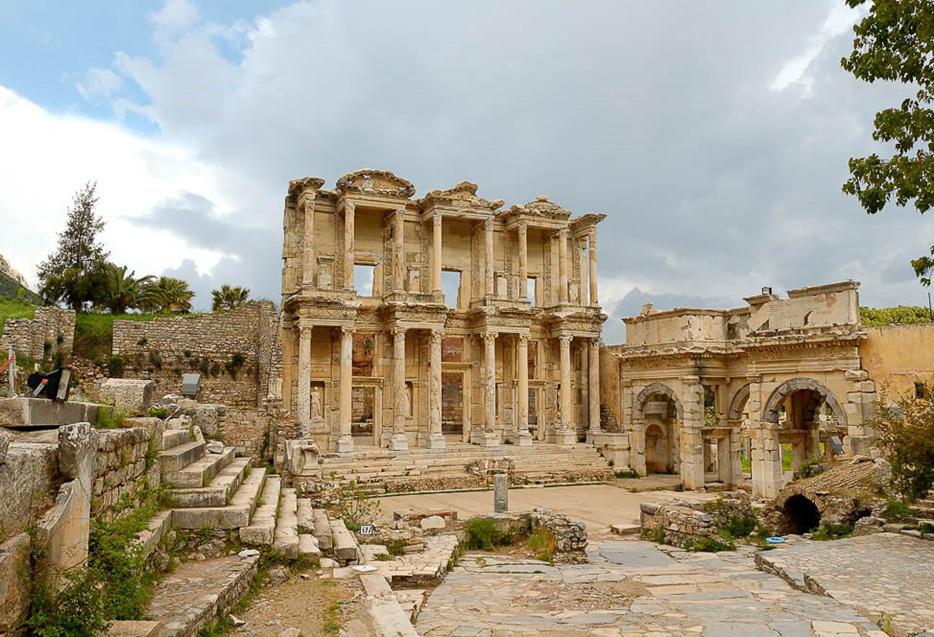
In Ephesus, the gospel of Jesus confronted both the worship of the goddess Artemis and the Ephesians’ firm belief in sorcery. It’s important to note that at first, even believers in Jesus were continuing to practice the magic arts, accepting a mixture of biblical truth and animistic practices. But when the people of Ephesus saw that the preaching of the gospel resulted in powerful healings and deliverances, fear came upon all, and even believers began admitting to and confessing their involvement with these superstitions.14
Persecution: The riot which was motivated by the gospel’s challenge to the worship of Artemis, described in Acts 19:23-41, is evidence of the hostility the early Christians in Ephesus encountered. In 1 Corinthians 16:7-9, Paul also speaks of his “many adversaries” in Ephesus. And the letters of John to the churches of Asia Minor in Revelation 2-3 demonstrate that persecution of believers in the region did not subside after Paul’s ministry in Ephesus had finished (cf. Revelation 2:2-3, 9-10, 13, 19; 3:10 — note the references to “patient endurance” which suggest trials of some nature, perhaps persecution).
The City and Province Were “Turned Upside Down” by the Gospel
Not only did the gospel turn the city of Ephesus upside down, but the entire province of Asia Minor was dramatically affected by the growing group of Jesus followers in Ephesus.
The central location of Ephesus in the province, the city’s proximity to major roads, and its status as a center of trade and destination for many travelers are all reasons 100-200 disciples who learned from Paul at the School of Tyrannus could plant churches throughout Asia Minor so that “all the residents of Asia (Minor) heard the word of the Lord, both Jews and Greeks.”15 By AD 100, it’s estimated that there were 80,000 followers of Jesus in Asia Minor. By AD 200, the province was largely Christian.16
Côte d’Ivoire
Côte d’Ivoire is like first-century Ephesus.
Central Location: Just as Ephesus was strategically located in a province at the crossroads between the eastern and western worlds of the first century, Côte d’Ivoire today is located in the midst of West Africa.
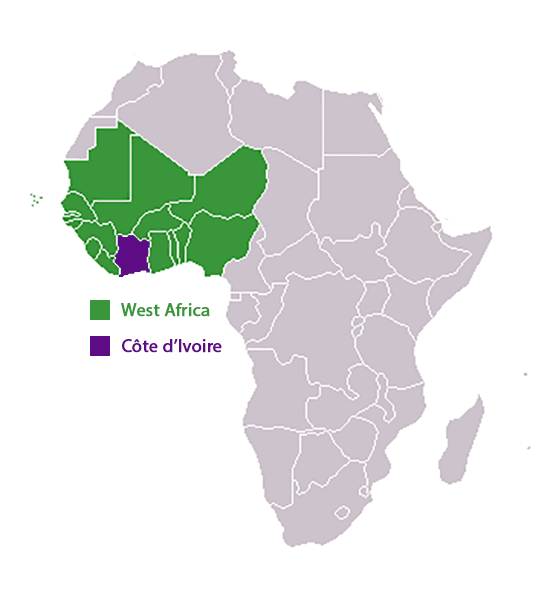
Roman roads in the province of Asia Minor facilitated the spread of the gospel across and beyond the province as travelers visited Ephesus and then returned to their home. Several aspects of the Ivoirian population can facilitate a similar dissemination of truth from Côte d’Ivoire to other parts of West Africa: 1) political borders in Africa are generally artificially established; 2) migration (for economic reasons) between Côte d’Ivoire and other West African nations is widespread as the economically disadvantaged come to Côte d’Ivoire for better jobs and then periodically return to their homes (for example, the migration corridor between Burkina Faso and Côte d’Ivoire is the busiest in Africa17 and twenty-eight percent of the population of Côte d’Ivoire comprises non-Ivoirian Africans18); and, 3) the presence of semi-nomadic tribes (primarily the Fulani who travel seasonally in search of better water supplies for their cattle19). These factors give the nation of Côte d’Ivoire the potential to be strategic in the gospel’s spread throughout West Africa.
Diversity: As Ephesus’ population was very diverse, Côte d’Ivoire is ethnically and linguistically diverse as well (with 108 unique people groups20 and 78 different languages21).
Age and Life Expectancy: The average age and life expectancy of the residents of Ephesus was dramatically less than today. But although modern-day medicine has improved life expectancy throughout the world, the median age of Côte d’Ivoire’s residents is still young at 20.3 years 22. Ivoirians have an average life expectancy of 66.23
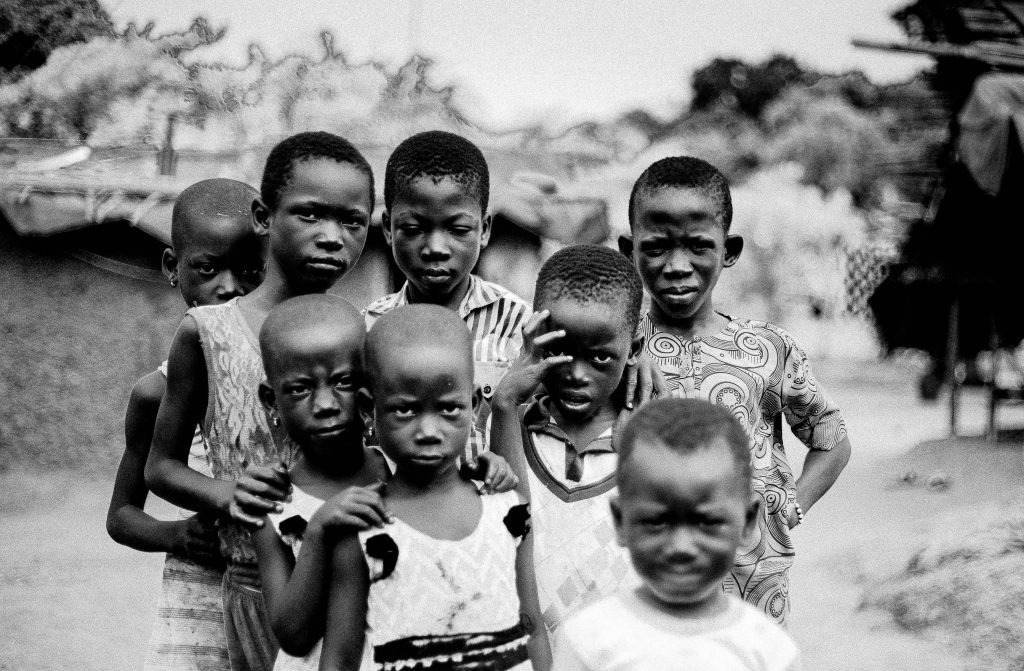
Religious Life: Côte d’Ivoire is home to about twenty-nine million people24, nearly nine million of whom are unreached by the gospel. While nearly thirty-two percent of the population claim affiliation with Christianity, only ten percent are evangelical.25
Just as Ephesus was a center for the worship of false gods (primarily Artemis, or Diana), forty-two percent of Côte d’Ivoire’s estimated 29 million people are Muslims, with Islam dominating the northern regions of the country. Twenty-four percent are animists.26 So nearly seventy-percent of the Ivoirian people worship false gods.
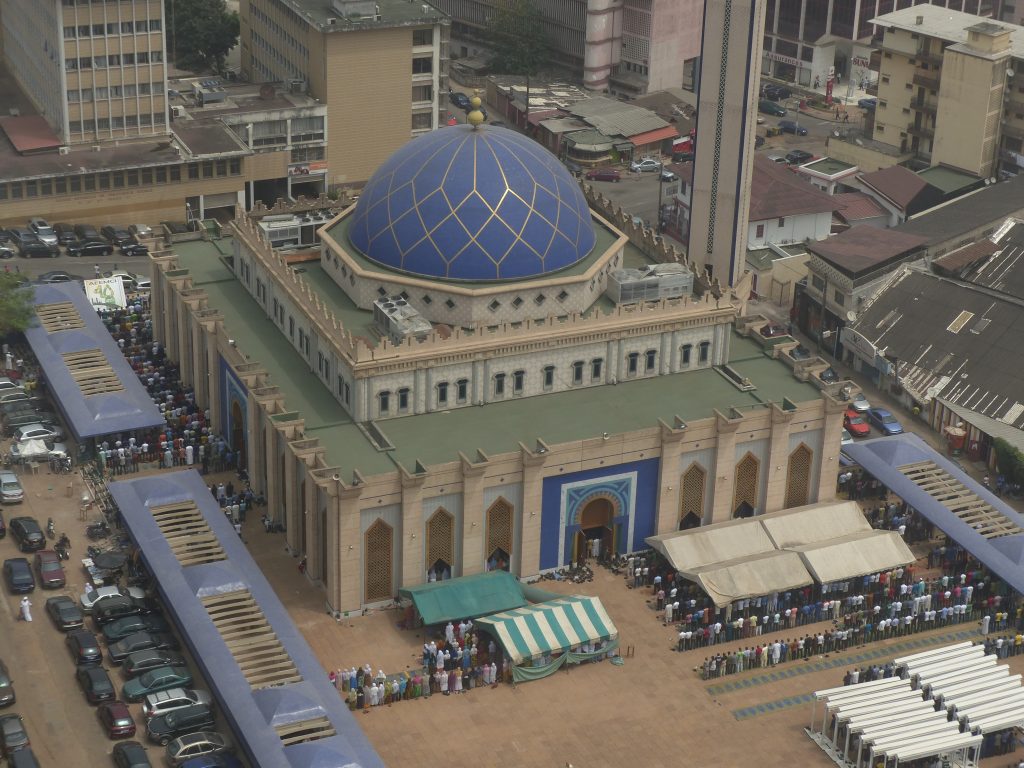
As mentioned above, twenty-four percent of Ivoirians are animists and hold beliefs similar to those of the first-century residents of Ephesus. And while nearly thirty-two percent of the population of Côte d’Ivoire claims affiliation with Christianity, syncretism (mixing the Christian faith with traditional African religious practices, such as using magical names and wearing amulets and scrolls) is extensive.27
Corruption: Like Ephesus, Côte d’Ivoire is no stranger to corruption. In 2021, Transparency International placed Côte d’Ivoire at number 105 on a list of 180 countries ranked from least to most corrupt.28 Freedom in the World 2022, an annual global report on political rights and civil liberties compiled by Freedom House, rates Côte d’Ivoire as “Partly Free.”29
Persecution: As in Ephesus, believers in Côte d’Ivoire are targets for persecution, primarily in the Muslim north. In addition, jihadist activity has grown as conflicts in Mali and Burkina Faso have spilled into the northern area of the country.30
With the striking similarities between Côte d’Ivoire and first-century Ephesus, it may be that Côte d’Ivoire is poised to have the same type of influence in the larger region that Ephesus had in Asia Minor. What is necessary is a way to train new missionaries — a modern-day School of Tyrannus.
Basecamp
Enter the Daloa Basecamp in the nation of Côte d’Ivoire, West Africa. For the last 16 months, Kevin and Moriah have taken part in this training program in which they have joined with several others (from different parts of the world) to live together as a community and:
- engage in ministry;
- grow in leadership skills;
- come to know Africa and its people;
- explore how their ministry gifts and interests can be used to reach Africa for Jesus; and,
- confirm God’s call on their lives.
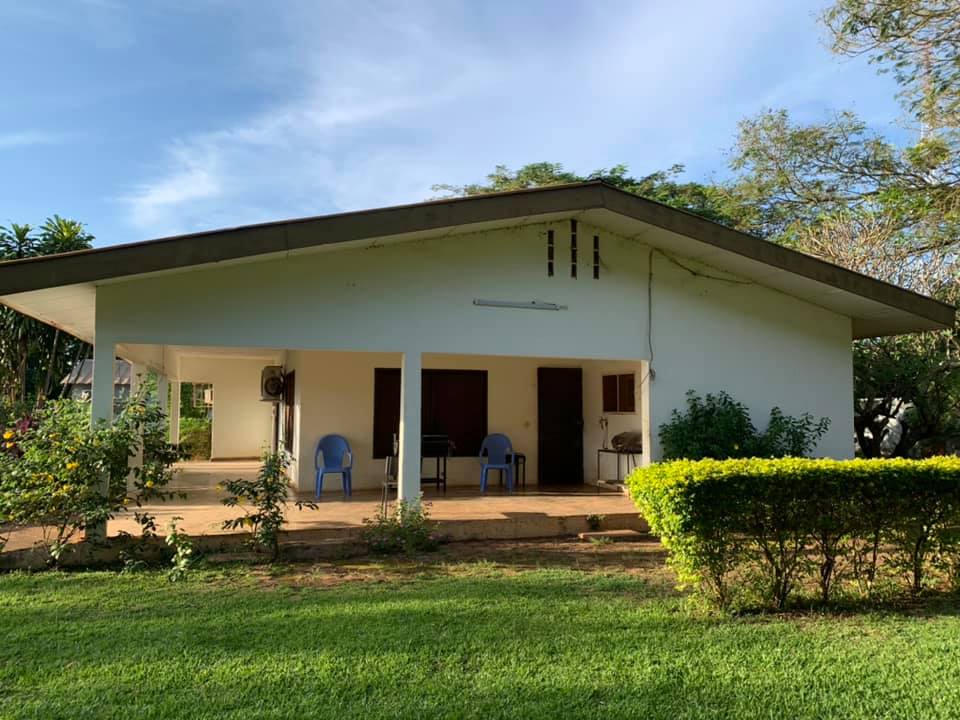
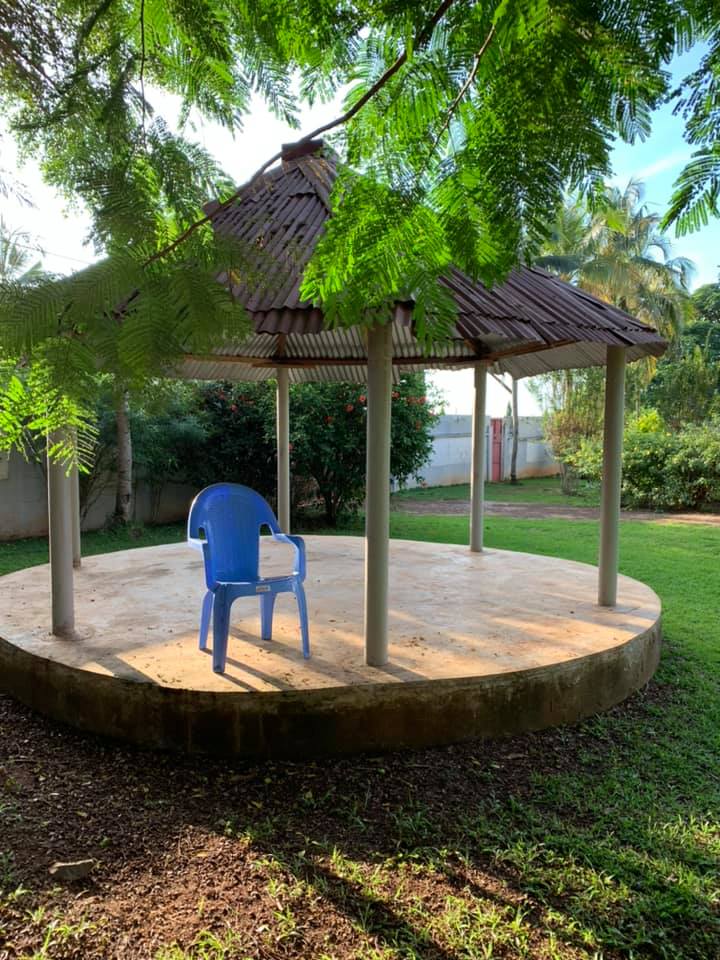
After gaining experience under the mentorship of veteran missionaries Brent and Shelley Teague — in evangelism, children’s and youth ministry, church-planting, construction (specifically, of special church buildings called “tabernacles”), hosting short-term missions teams, and compassion ministries — Kevin and Moriah are now better prepared to spread the gospel in Côte d’Ivoire, much like those who went with Paul to the School of Tyrannus were better prepared to spread the gospel throughout Asia Minor.
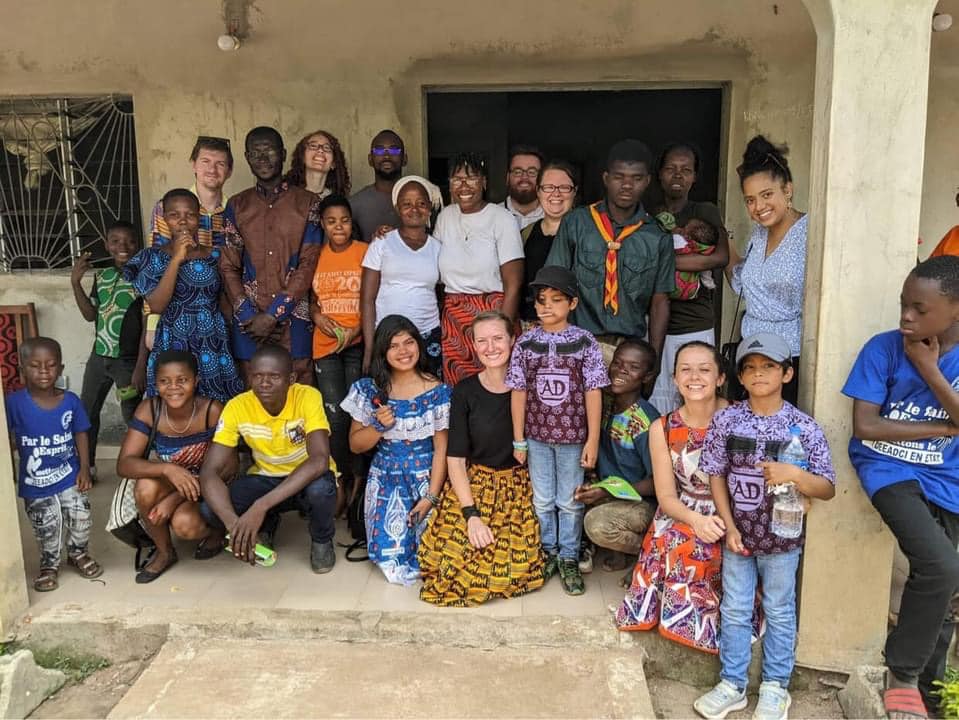
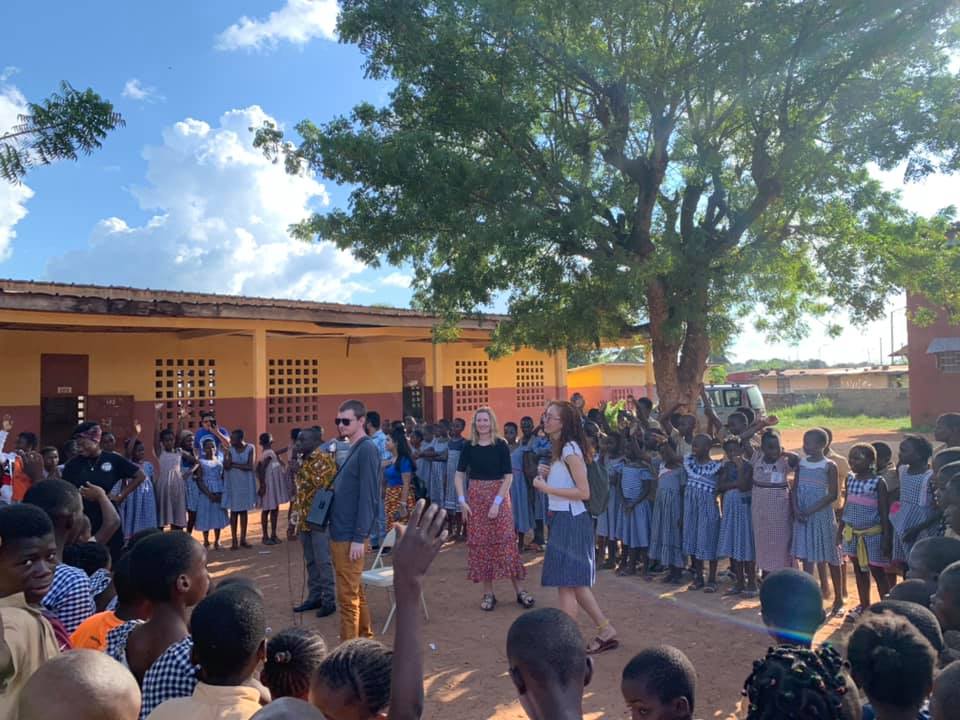
Your investment in Kevin and Moriah through prayer, financial support, logistical support, etc. will have far-reaching effects because they have undergone training to take the gospel to a strategic part of Africa.
Kevin
Kevin grew up in a Christian home, but it was broken by divorce when Kevin was young. Later, his mom married a pastor, but he left her 15 days later.
Kevin’s family had a history of drug addiction (many are still alcoholics). Kevin’s mom and grandmother had suicidal tendencies. His dad was in prison. Kevin thought that was his destiny.
At 12 years old, he followed a lifestyle of drugs and addiction. By the age of 15, he was a full-blown alcoholic. He was ensnared by bad relationships, lying, and stealing.
When Kevin turned 22, he ran from God. God was calling him to salvation and service, but like Jonah, he ran — to California. He was homeless and abandoned on the streets of California — living in an abandoned garage with a woman not his wife, hopelessly addicted to methamphetamines. His life was radically out of control, and he wanted it to end.
But while Kevin was radically lost, his mother and aunt prayed for him every day. His mother believed her whole life that Kevin would come to faith in Christ and serve Him wholeheartedly. Ultimately, she did not get to see that happen in her lifetime (as she passed away from breast cancer in 2014), but she prayed for it every day.
At 23, Kevin found himself in the hospital for attempting suicide. While in the hospital, a chaplain gave Kevin a book called “Hope; An Anchor for the Soul,” which he began to read. Soon, his Aunt Norma allowed him to come stay with her. On April 28, 2015, Kevin finished the book and converted to Christ in the room where his mother had died in his aunt’s house.
Although he was once radically lost, now he was radically saved.
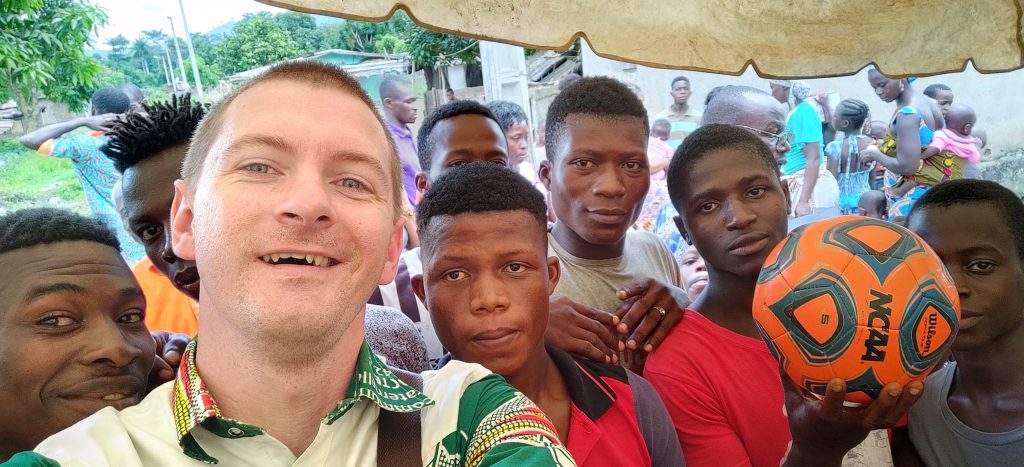
But he lacked one thing. He couldn’t shake his addictions. He came to realize that addiction is a spiritual battle that can only be won by spiritual means. So he went to his pastor and asked for help. The pastor told him he needed discipleship and told him about a program called Teen Challenge, a Christ-centered model of drug and alcohol recovery with over 1,400 programs in 129 nations.
Upon the pastor’s advice, Kevin entered Adult and Teen Challenge of Sandhills, North Carolina. While in the Teen Challenge program, Kevin learned that to be discipled in the way of Jesus, to learn to obey Jesus’ words, we need someone right beside us, leading us along the way. He observed that in the Teen Challenge program before ever reading it in the Bible.
At the Sandhills treatment center, Kevin met a rehabilitation counselor named Sean Jones. Sean had a map from Voice of the Martyrs on the wall of his room. When Kevin expressed interest, Sean told him about persecuted Christians and those who were willing to die for Christ.
As Kevin thought more about those who did not know Jesus and the freedom He brings (that Kevin had now experienced), his heart shattered. While in the Teen Challenge program, he made it a practice to stay up from 10:00 to 11:00 pm and pray for people in the program. One night, in the treatment center’s chapel, Kevin was considering a map on the wall and a book which explained an area of the world that has come to be known as the “10/40 Window.”
The 10/40 Window is a rectangular area between 10 degrees north and 40 degrees north latitude, covering portions of North Africa, the Middle East, and Asia (and the northern part of Côte d’Ivoire lies within the 10/40 Window). Most of the world’s Muslims, Hindus, and Buddhists live within the 10/40 Window. “Approximately 5.21 billion individuals residing in 8,868 distinct people groups are in the … 10/40 Window. 6,180 (69.7%) of these people groups are considered unreached and have a population of 3.18 billion. This means approximately 61% of the individuals in the 10/40 Window live in an unreached people group.”31
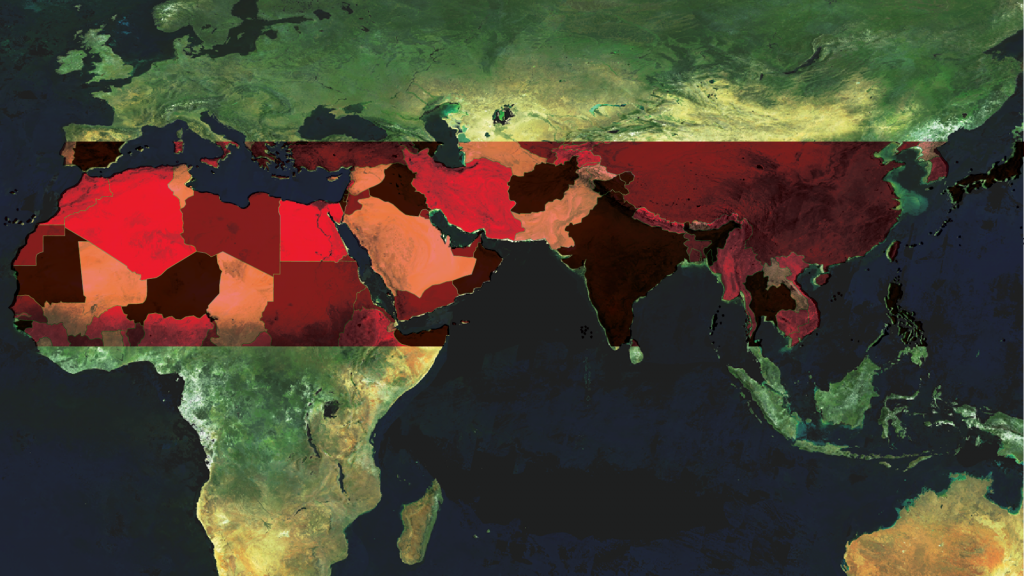
As he considered the map on the wall and the book, he found his heart shattered for the lost, and his prayer became, “God, when missionaries are taken away in the 10/40 Window, who will replace them? Who is praying for the people in the 10/40 Window?”
And so, he began praying for unreached peoples and found that he could not shake praying for Africa.
Moriah
Moriah grew up in Beacon, New York. When she was a preteen and teenager, she took part in the Salvation Army’s after-school program in which she learned about Jesus. But what she learned did not have an immediate effect on her lifestyle. She struggled with alcohol and drug abuse, stealing, and sexual immorality.
Like Kevin, she was radically lost. But Jesus was pursuing her. In 2016, at the age of 22, she encountered Jesus through the ministry of 1Hope Assembly of God in Sanford, North Carolina. Her life transformed — her life of alcohol and drug abuse, theft, and immorality came to a radical end through the strength that Jesus provided. Her direction in life also changed as she began studying early childhood education at the local community college.
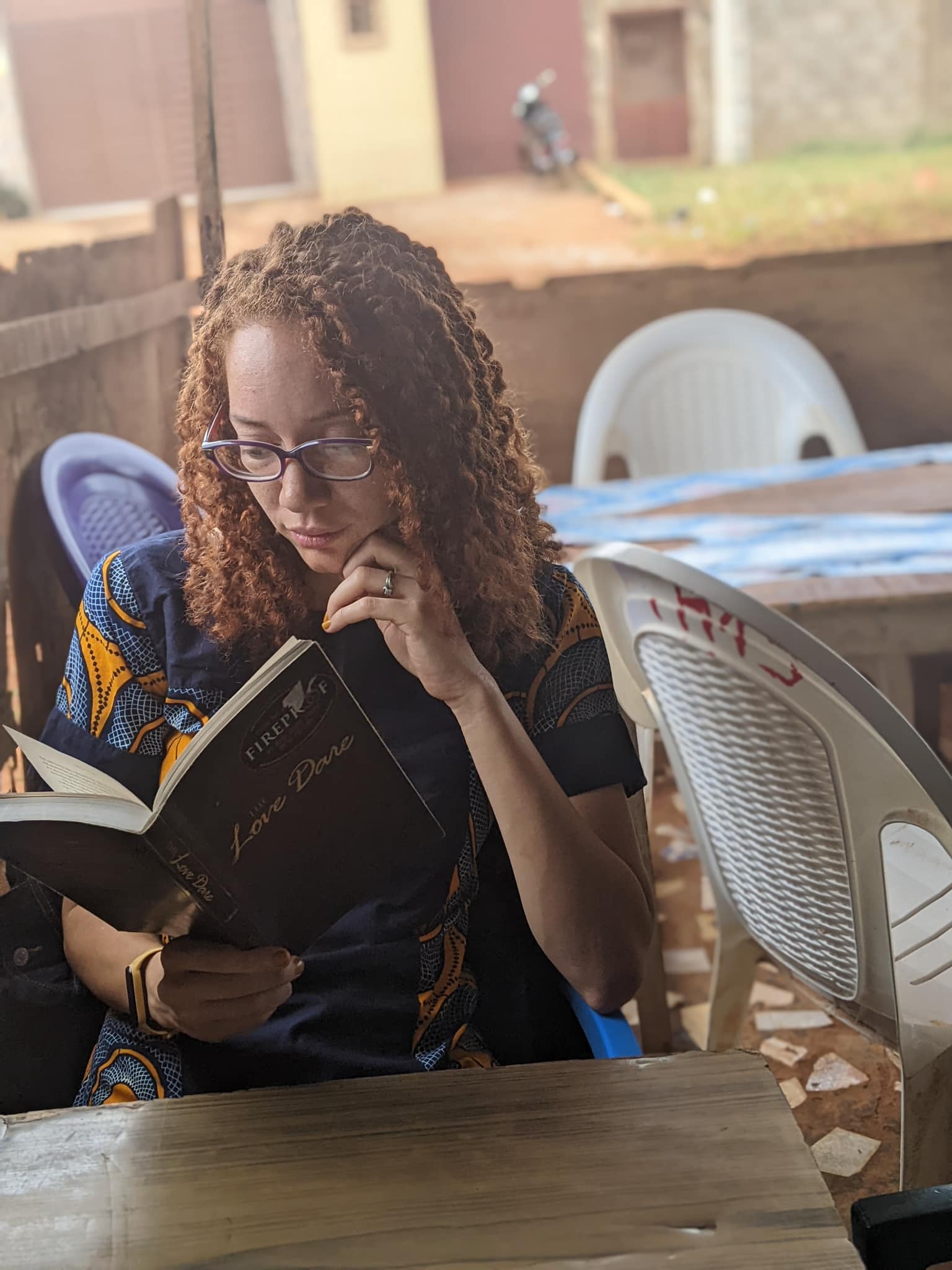
It was during this season of her life that Moriah stumbled upon Voice of the Martyrs magazine, which includes information about the persecution of Christians worldwide, stories of persecuted believers, and encouragement to pray for and otherwise help those persecuted for their Christian faith. She also listened to Voice of the Martyrs Radio. The articles she read and the episodes to which she listened were inspiring.
A few months later, 1Hope Assembly was looking for a missions coordinator. No one volunteered, so Moriah said she would try. She brought excitement and optimism to the church’s missions program, providing leadership and coordination for Sunday mission moments, support for overseas churches, church mission trips, BGMC (Boys & Girls Missionary Challenge) Sundays, church missions banquets, and a Voice of the Martyrs secret church night.
While serving in this capacity and also in other areas of the ministry, Moriah grew in her desire to share Christ with others, so that her friends, family, and strangers would learn of Jesus’ love and forgiveness.
While at 1Hope Assembly, Moriah met Kevin who was also a new believer and passionate about evangelism.
Kevin and Moriah
Kevin and Moriah were married in 2017 at One Hope Assembly. Together, they have determined to live their life together in light of Luke 14:33, Acts 20:24, and 2 Corinthians 5:14-15:
Luke 14:33 – “So therefore, any one of you who does not renounce all that he has cannot be my disciple.”
Acts 20:24 – “But I do not account my life of any value nor as precious to myself, if only I may finish my course and the ministry that I received from the Lord Jesus, to testify to the gospel of the grace of God.”
2 Corinthians 5:14-15 – “For the love of Christ controls us, because we have concluded this: that one has died for all, therefore all have died; and he died for all, that those who live might no longer live for themselves but for him who for their sake died and was raised.”
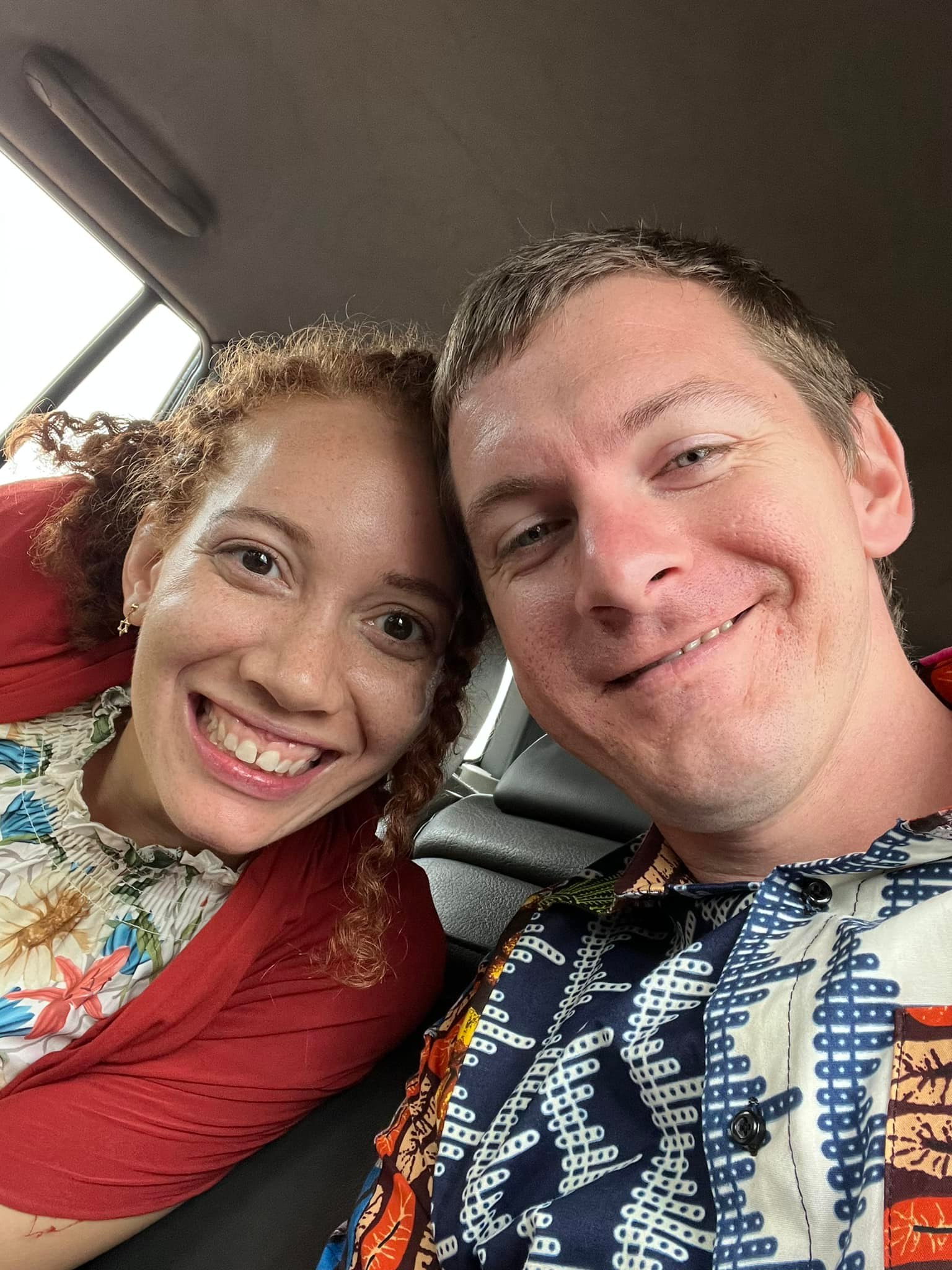
Kevin and Moriah have renounced all that they have, not counting their lives as valuable, so that they might live for Jesus and finish the course and ministry that they have received from Him, to testify to the gospel of grace in Côte d’Ivoire.
TABERNACLE EVANGELISM
As their initial two-year term is approaching its completion in March 2023, Kevin and Moriah have been asked to return to Côte d’Ivoire (after a season of reporting back to their friends and supporting churches in the United States, along with another round of support-raising) to continue their work in leading tabernacle construction teams.
According to Africa Tabernacle Evangelism, “a tabernacle is a set of steel trusses and a roof system that can easily be … set up within a matter of a few hours.” Once constructed, tabernacles become public places in African villages and towns. In addition to hosting church gatherings, they become safe locations to distribute vaccines, medications, water filters, foods, etc. As public places of prominence in the town or village, they bring attention to the gospel and the truth is declared publicly.
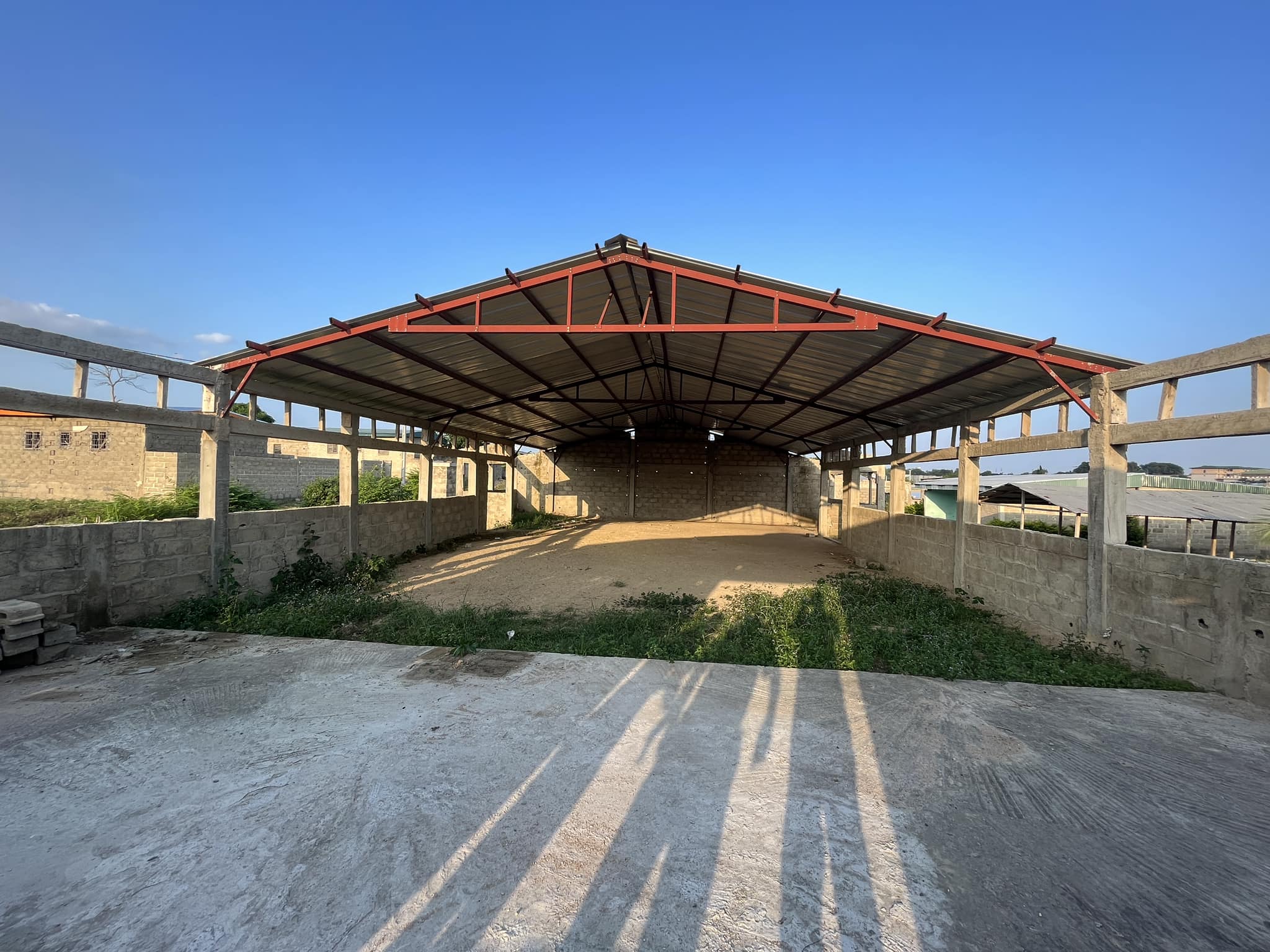
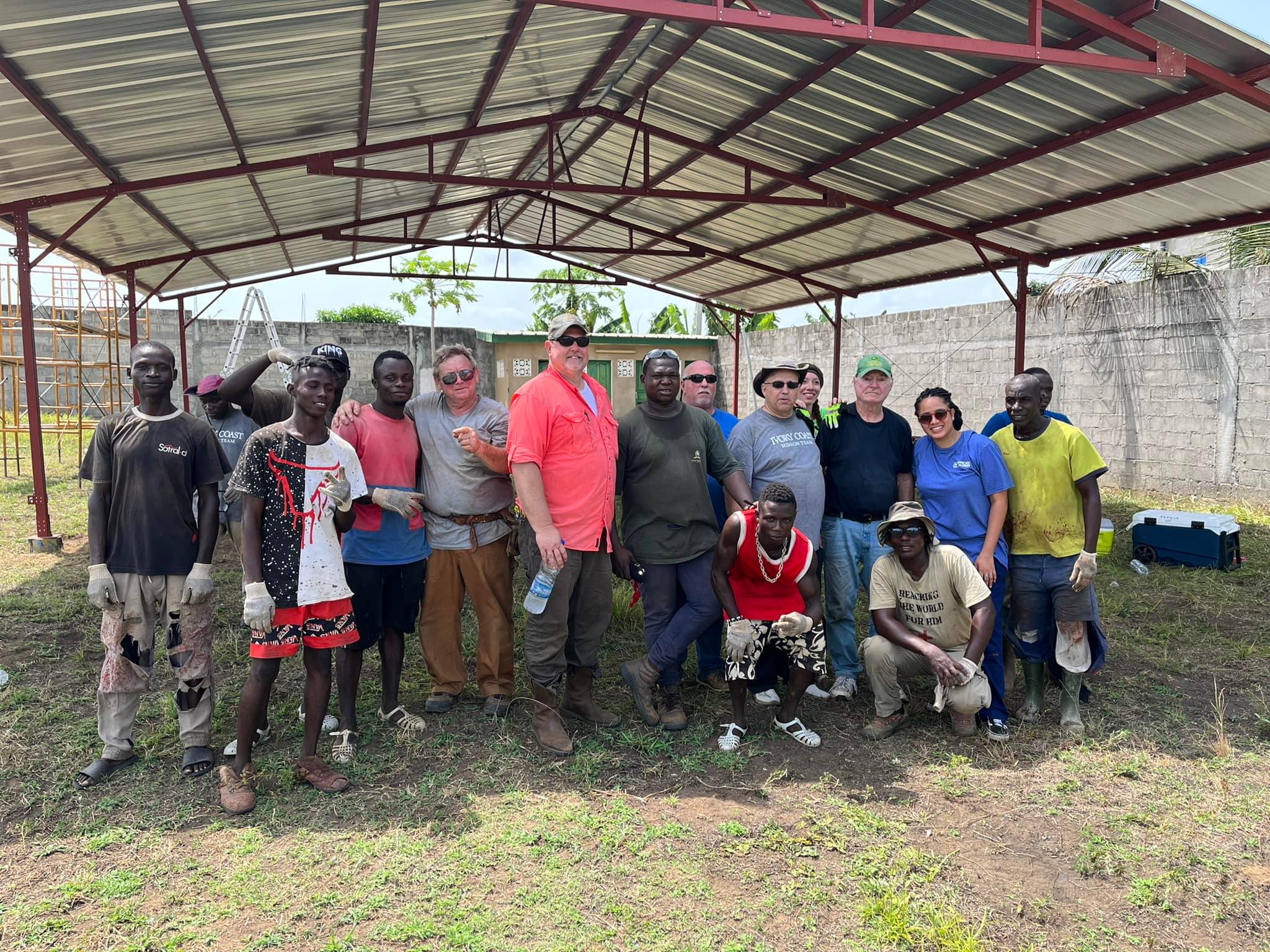
Kevin and Moriah plan to expand the current tabernacle construction ministry to include teaching building skills to young Ivoirians so they can not only help with construction but also be discipled as part of the ministry (similar to what happens in a Teen Challenge program).
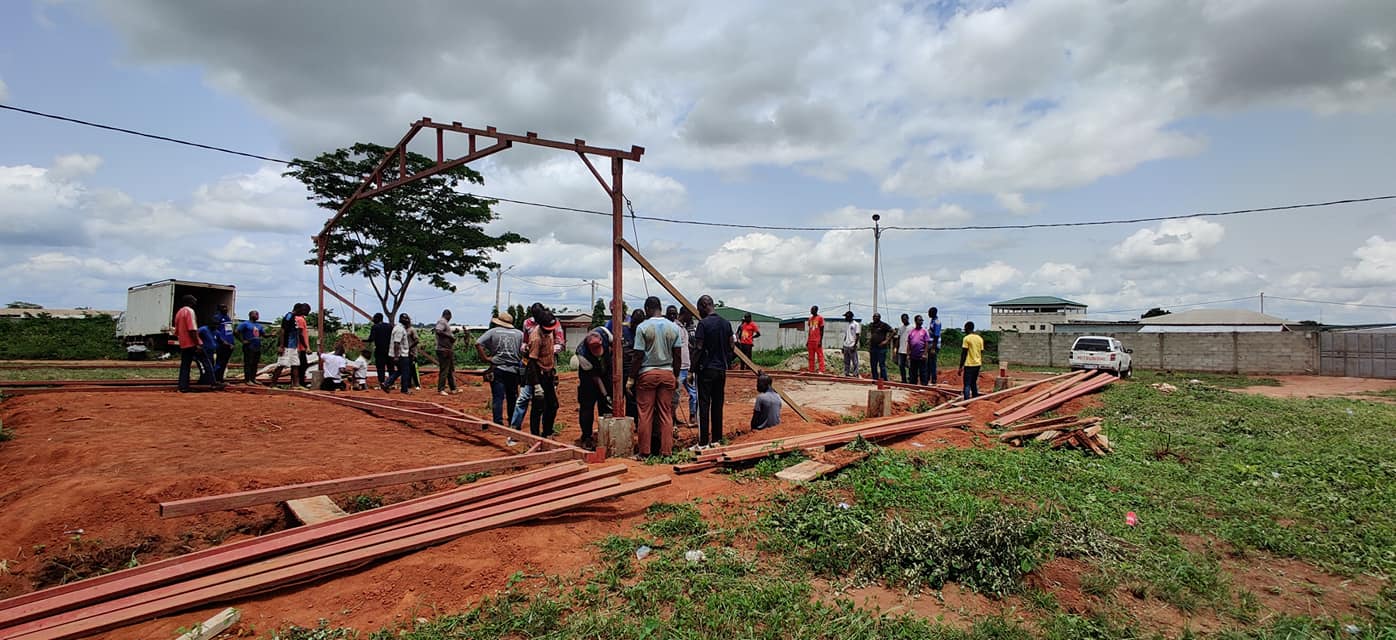
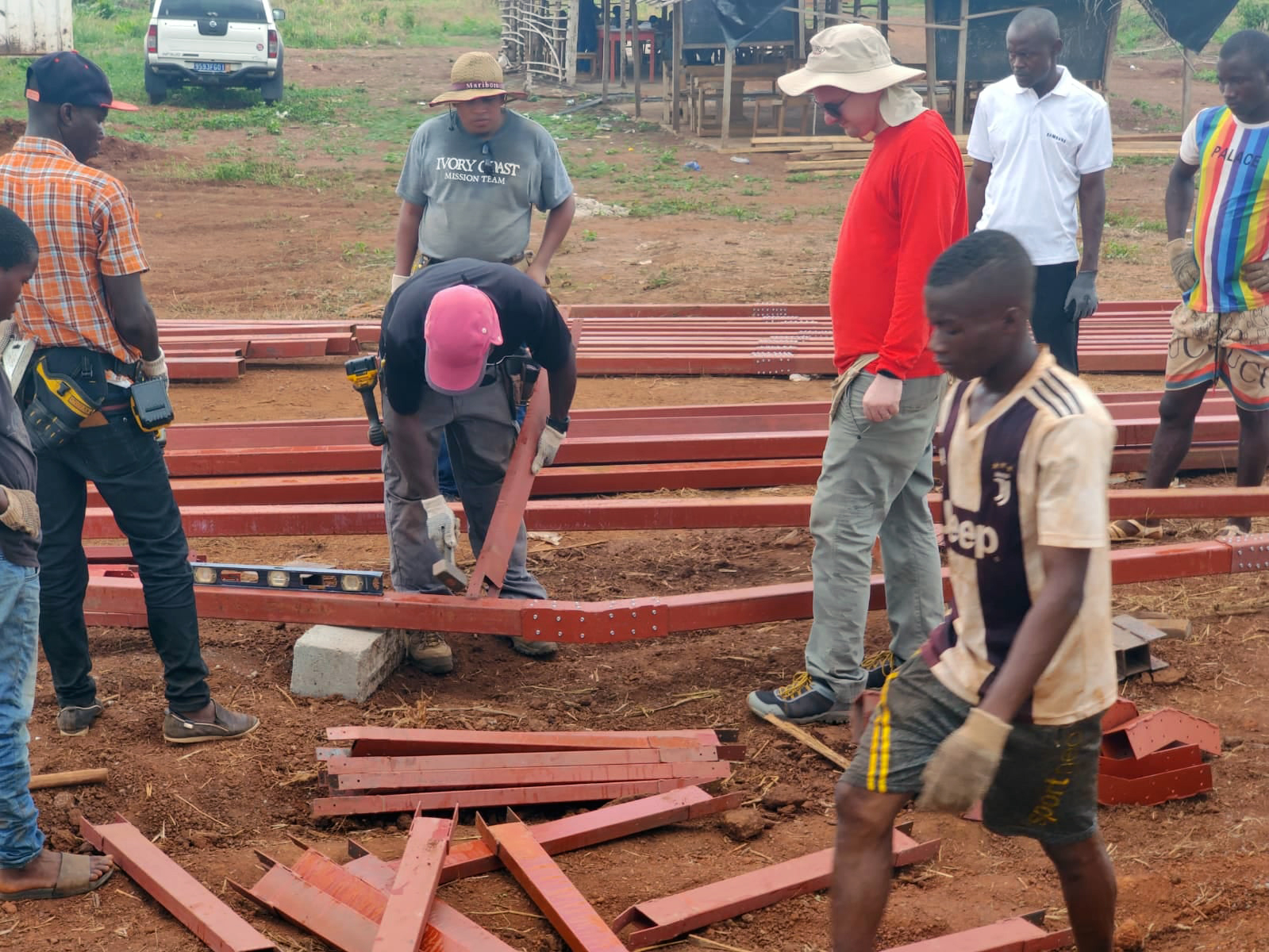
How to Join the Thompsons in Reaching West Africa for Jesus
If you’ve read our pillar articles (which can be reached through the tabs at the top of the site if you are using a desktop or the three-bar/”hamburger” menu if you are using a mobile device), you know that our conviction is that all believers should be part of a team seeking to reach the unreached. Some will go, some will pray, some will provide financial support, some will provide logistical support — but all are called to give their lives to reach the nations.
By joining Kevin and Moriah’s team, you can play a part in spreading the gospel in Central and West Africa. Here are four ways you can be a part of Kevin and Moriah’s team:
- You can pray for Kevin and Moriah on an ongoing basis. The best way to stay informed of their prayer needs is by signing up for their newsletter at their website.
- You can support Kevin and Moriah financially by signing up to support them on a monthly basis or to contribute a one-time gift.
- You can consider physically joining Kevin and Moriah to aid the work in Côte d’Ivoire. To find out about opportunities to serve the Lord in Côte d’Ivoire, visit the Wide Open Missions website.
- One of the specific ways you can aid the work is by joining a tabernacle construction team.
- If you are a pastor or missions leader in your church, we would encourage you to get in touch with Kevin and Moriah to see how they might be able to encourage your people for the cause of missions in Côte d’Ivoire and also to find out how you can be of service to them. You can contact them by using the information on their Assemblies of God missionary directory page.
COUNTRIES IN THIS ARTICLE: Côte d’Ivoire
WORKERS IN THIS ARTICLE: Kevin and Moriah Thompson, Brent and Shelley Teague, Breanna Johnson
1 Windle, Bryan. “FOOTSTEPS: Three Things in Ephesus Timothy Likely Saw.” Bible Archaeology Report, 17 Aug. 2019, biblearchaeologyreport.com/2019/08/17/three-things-in-ephesus-timothy-likely-saw/. Cf. also Acts 19:28.
2 Smyrell, Gordon. “Ephesus in the First Century.” Taking Ground: Bible Study Resources, Taking Ground, 17 Apr. 2017, target=”_blank”>resources.takingground.org.uk/ephesus-in-the-first-century/; Vander Laan, Ray. “Province of Asia Minor.” That the World May Know, www.thattheworldmayknow.com/province-of-asia-minor. Accessed 12 June 2022.
3 “Unity through Diversity in the Church.” 2017. Lexham Press. March 13, 2017. https://blog.lexhampress.com/2017/03/13/unity-through-diversity-in-the-church/.
4 J Rasmus Brandt, Erika Hagelberg, Gro Bjørnstad, and Sven Ahrens. 2017. Life and Death in Asia Minor in Hellenistic, Roman, and Byzantine Times : Studies in Archaeology and Bioarchaeology. Oxford; Philadelphia: Oxbow Books, pp. 18-42.
5 Vander Laan, “Artemis of the Ephesians,” That the World May Know, https://www.thattheworldmayknow.com/artemis-of-the-ephesians. Accessed 3 July 2022.
6 Windle, FOOTSTEPS.
7 Gromacki, Gary. “The Spiritual War for Ephesus.” The Journal of Ministry and Theology, vol. 15, no. 2, 2011, pp. 79–131, www.academia.edu/9248376/The_Spiritual_War_for_Ephesus. Accessed 19 June 2022.
8 Roberts, Mark D. n.d. “Ancient Ephesus and the New Testament.” Mark D. Roberts. https://www.patheos.com/blogs/markdroberts/series/ancient-ephesus-and-the-new-testament/; Longenecker, Richard N. Acts. Grand Rapids, Zondervan, 2007, p 1010; Zondervan Illustrated Bible Backgrounds Commentary: Acts. Edited by Clinton E. Arnold, Grand Rapids, MI, Zondervan, 2002, p. 194.
9 Murphy-O’Connor, J., 2008. St. Paul’s Ephesus. Collegeville, Minn.: Liturgical Press, pp.48-49; “Paullus Fabius Persicus, Claudius, and the temple of Artemis in Ephesos | Judaism and Rome.” Judaism-and-rome.org, https://www.judaism-and-rome.org/paullus-fabius-persicus-claudius-and-temple-artemis-ephesos. Accessed 3 July 2022.
10 Cooper, Michael T. 2020. Ephesiology : A Study of the Ephesian Movement. Littleton, Co: William Carey Library, p 219.
11 Acts 18:24-28.
12 Acts 19:8-9a.
13 Cooper, pp. 223-224.
14 Acts 19:18-19.
15 Acts 19:10.
16 Vander Laan, Ray, Province of Asia Minor.
17 “Jihadists in the Sahel Threaten West Africa’s Coastal States.” 2020. The Economist. July 9, 2020. https://www.economist.com/middle-east-and-africa/2020/07/09/jihadists-in-the-sahel-threaten-west-africas-coastal-states.
18 Minority Rights Group International, World Directory of Minorities and Indigenous Peoples – Côte d’Ivoire : Overview, 2007, available at: https://www.refworld.org/docid/4954ce6123.html [accessed 11 September 2022]
19 Project, Joshua. n.d. “Fulani, Maasina in Côte D’Ivoire.” Joshuaproject.net. Accessed September 11, 2022. https://joshuaproject.net/people_groups/11773/IV.
20 “Côte d’Ivoire | Joshua Project.” Joshuaproject.net, Frontier Ventures, joshuaproject.net/countries/IV. Accessed 11 September 2022.
21 “Ivory Coast.” Wikipedia. Wikimedia Foundation, September 11, 2022. https://en.wikipedia.org/wiki/Ivory_Coast.
22 “Cote d’Ivoire – the World Factbook.” n.d. Www.cia.gov. https://www.cia.gov/the-world-factbook/countries/cote-divoire/. Accessed 11 September 2022.
23 “Cote d’Ivoire – the World Factbook.”
24 “Cote d’Ivoire – the World Factbook.”
25 “Côte d’Ivoire | Joshua Project.”
26 Mandryk, Jason. Operation World, pages 284-285.
27 Mandryk, Operation World
28 “2021 Corruption Perceptions Index – Explore Côte d’Ivoire’s Results.” Transparency.org, https://www.transparency.org/en/cpi/2021/index/civ. Accessed 11 September 2022.
29 “Côte d’Ivoire: Freedom in the World 2022 Country Report.” Freedom House, https://freedomhouse.org/country/cote-divoire/freedom-world/2022. Accessed 11 September 2022.
30 “Jihadists in the Sahel Threaten West Africa’s Coastal States.” 2020. The Economist.
31 “10/40 Window | Joshua Project.” Joshuaproject.net, Frontier Ventures, joshuaproject.net/resources/articles/10_40_window. Accessed 4 June 2022.
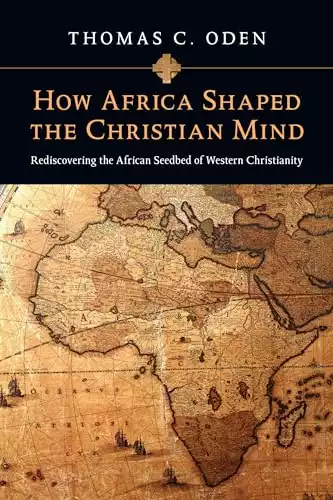
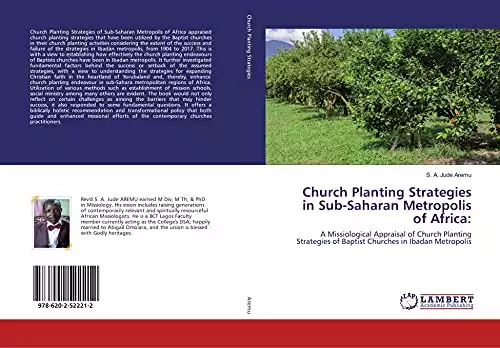

The first one-volume Bible commentary produced in Africa by African theologians to meet the needs of African pastors, students, and lay leaders. Interpreting and applying the Bible in the light of African culture and realities, it furnishes powerful and relevant insights into the biblical text that transcend Africa in their significance.